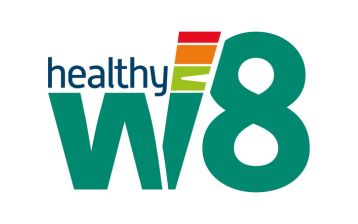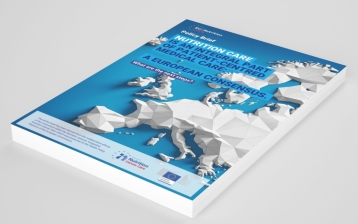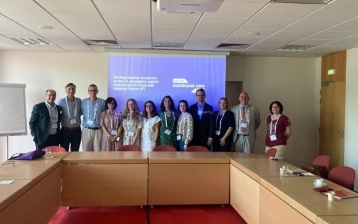
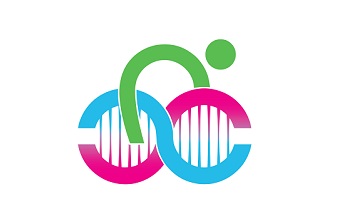
RoW logo
INTRODUCTION
The Rarity on wheels- RoW Project addresses people affected by rare diseases (RDs) and their actual possibility to participate in sports activities and competitions. Patients affected by rare diseases, both children and adults, manifest multiple difficulties in their daily lives: from health and clinical issues to school, work, and social exclusion, due to their particular and often invisible disability status. Sport is a healthy recreational activity that allows the reduction of physical and psychological stress. It is also, and above all, a means to challenge one’s own limits and to promote social inclusion and equal access to leisure activities.
The RoW project aims at spreading knowledge on RDs and the right of people affected by RD to access sports activities.
Starting from these premises, this project started from the will to disseminate and scale up in 3 different EU countries, Italy, Spain, and Poland, the good practice “La Rarità su due ruote” developed by the project coordinator “Un filo per la vita”. This practice aimed to promote equal access to sports activities (in particular cycling) and sports competitions for people affected by rare diseases and to foster awareness raising on rare diseases, spreading knowledge on the topic through sport.
In order to reach these objectives, the good practice is based on the creation of a bike team made by people affected by a rare disease/families/caregivers crossing the country (therefore mixed, including people with and people without disabilities) on bike, participating to national competitions and sports events, spreading knowledge on their right to access sports activities, on their rare disease and on positive effects of sport on patient’s health.
Project Objectives
- to identify the main problems and difficulties faced by athletes and patients affected by RDs in
participating to sports activities
- to promote the acquisition of knowledge, competence, and skills among NGOs and sport managers, trainers, and coaches on RDs and Sport to foster awareness raising on rare diseases through sport
- to influence policymakers in order to promote the definition of specific sports policies for RD patients and in particular for the recognition of their disabilities in the Paralympic games.
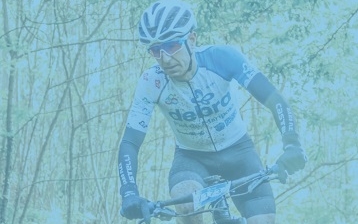
FINDINGS OF THE INITIAL RESEARCH
The RoW research report summarises the results emerging from the surveys and the national focus groups represent a solid basis for identifying the needs of the main target groups in relation to the participation in sport activities.
The comparative analysis has found strong consensus on the role of sport as a driving force for:
- promoting people with rare diseases’ cognitive, social, and emotional development;
- encouraging social inclusion of people with RD.
The comparative analysis results also highlight some crucial obstacles (e.g. lack of preparation of coaches to support people with RD, shortage of facilities and clubs/associations willing to welcome people with RD; lack of accessible facilities, health, and safety) to sport participation.
As already pointed out, research shows the scarce and sometimes even missing knowledge of any activities – implemented at the national, and above all the European level – aimed to encourage social inclusion and raise awareness about rare diseases.
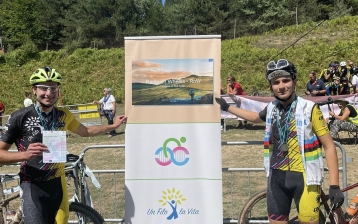
The Italian team during the Sila Epic MTB Marathon
EVALUATION OF THE AWARENESS-RAISING CAMPAIGNS
In the last phase of the two years of the Row Project, the partner organizations implemented three raising awareness campaigns in each country. The format of the campaigns was focused on the participation of the biking teams in three events organized by other entities. The purpose was at the same time to promote the activities of the project and raise awareness about rare diseases in sports but also to test the availability and interest of third parties in welcoming such initiatives. The campaigns were a real success although the results were not to be taken for granted.
The experience of participation in the three events in each country is presented in the RoW Booklet.
Below you can read some very interesting findings:
- First of all, the knowledge and awareness of the general public are limited with regard to a rare disease. People generally know what a rare disease might be but many of the people engaged were not even able to name a rare disease. Society needs to make some steps forward in terms of awareness and collective responsibility as well.
- Secondly, although all the organizers accepted having the RoW project as a partner to their event, without having common elements (e.g. direct acquaintance of people affected by a rare disease or their families) it was less effective to talk about the Row project and the importance of sport for raising awareness about rare diseases. People connect more deeply with situations they know directly and for example in Spain, where one of the RoW team members is a well-known biker whose daughter is affected by butterfly skin, the events were much more powerful than when we presented the RoW project to a public with no connection to the speakers.
- Finally, a competition is not the best moment to create spaces for discussion and awareness-raising initiatives as people attending were very focused on the sports side of the event.
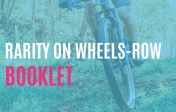
WHY POLICY RECOMMENDATIONS?
The social role of sports, its powerful inclusiveness, its benefits from mental and physical health are nowadays taken for granted but not for everyone. Public and private entities, sports clubs, associations, coaches and professionals have new technologies and new expectations that need to be reflected in policies from the European Union and its Member States.
Society needs a policy framework for rare diseases and sports represent a further step in the improvement of the quality of life of rare disease patients. The recommendations should work together with ongoing European strategies and programmes such as the European disability strategy.
The RoW policy recommendations address two main target groups:
- National and European policymakers
- National and European sport organisations
Through the policy recommendations, addressed to policymakers, including the European Commission itself, and sports associations, the aim is to promote political action at an international level towards the inclusion of athletes with disabilities in sports competitions at the highest levels such as the Paralympics.
POLICY RECOMMENDATIONS OF THE ROW PROJECT
Stemming from the experience of project partners the following recommendations have been designed:
#1
RECOGNITION OF A DISEASE AS A RARE DISEASE
#2
INCREASED AND IMPROVED TRAINING OF SPORTS PROFESSIONALS AND COACHES
#3
INCREASED SUPPORT TO THE CAREGIVER
#4
INCREASED INVESTMENTS ON ADAPTED SPORT
#5
MOVING TOWARDS AND INTEGRATED AND PERSON-CENTRED CARE
#6
ENCOURAGING A CULTURE OF MEANINGFUL PARTICIPATION AND ENGAGEMENT OF PEOPLE LIVING WITH RARE DISEASES IN SPORT
#7
IMPLEMENTING A LARGER NUMBER OF SPORT PROJECTS WITH AN INTERNATIONAL FOCUS
#8
CREATING OPPORTUNITIES TO APPOINT LOCAL SPORT LEADERS
All the recommendations are available in detail in the report below, as well as plenty of interesting related material for further reading:
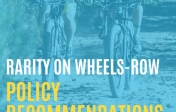
CONCLUSIONS: AN OPEN INVITATION TO POLICYMAKERS
While the European Union has made significant progress in the past decade to improve the life of people living with a rare disease in Europe, it is undeniable that in the sports field, there is a lot to be done. Too often the inclusion of people with rare diseases as well as people with disabilities in sports activities is left to individual initiatives rather than collective and political responsibility.
It has taken some decades to get where we are. It is now time that political action takes the lead and lays the foundation for all factors to align in the sports field, too. Policymakers together with sports clubs, associations, coaches, families, and public entities have the opportunity to produce an extraordinary change in the next decades.
Without a meaningful participation of people affected by rare diseases and people with disabilities in sports activities there cannot be real inclusion and a real improvement in the quality of life.
It is now time for the sports world to become a truly inclusive environment where competition can make way for cooperation, fun, and health for all so that also people with a rare disease can have the healthiest and best life they can.
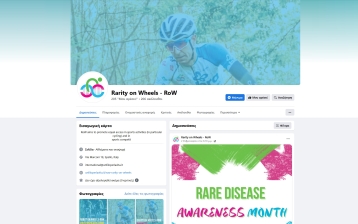
You can see pictures from the events, awareness videos and find additional information on the RoW Facebook Page

